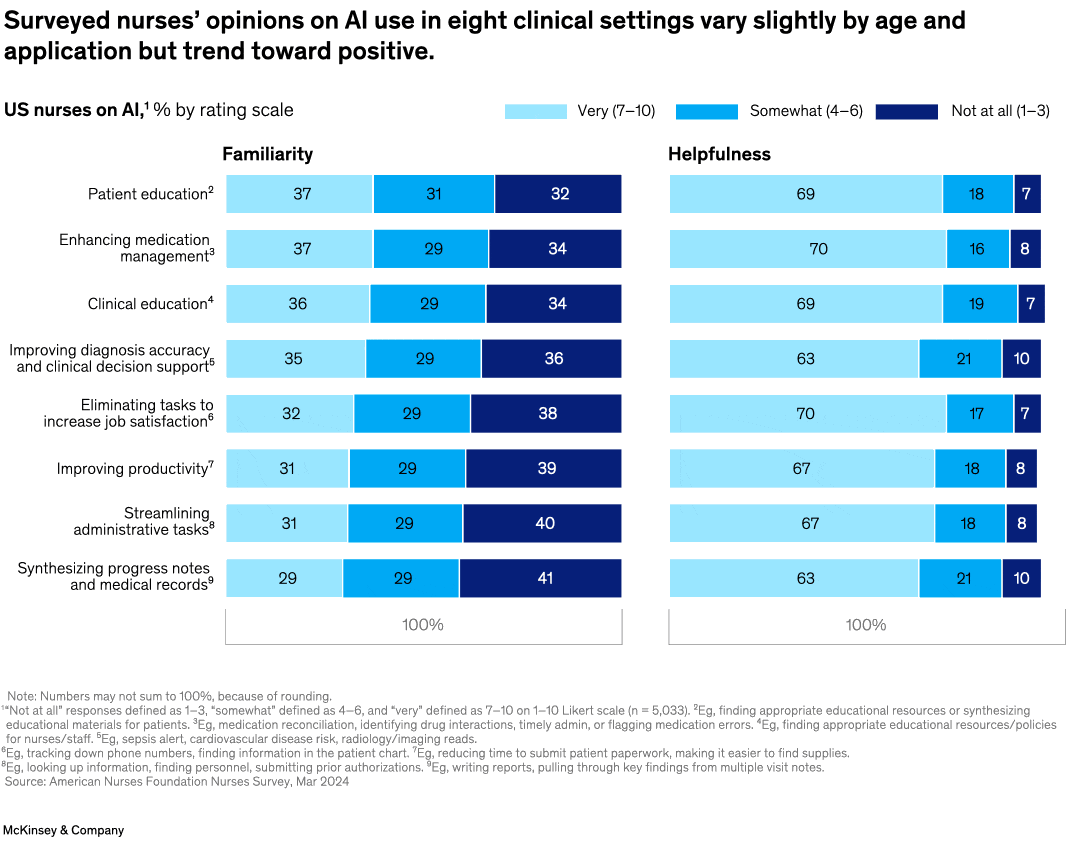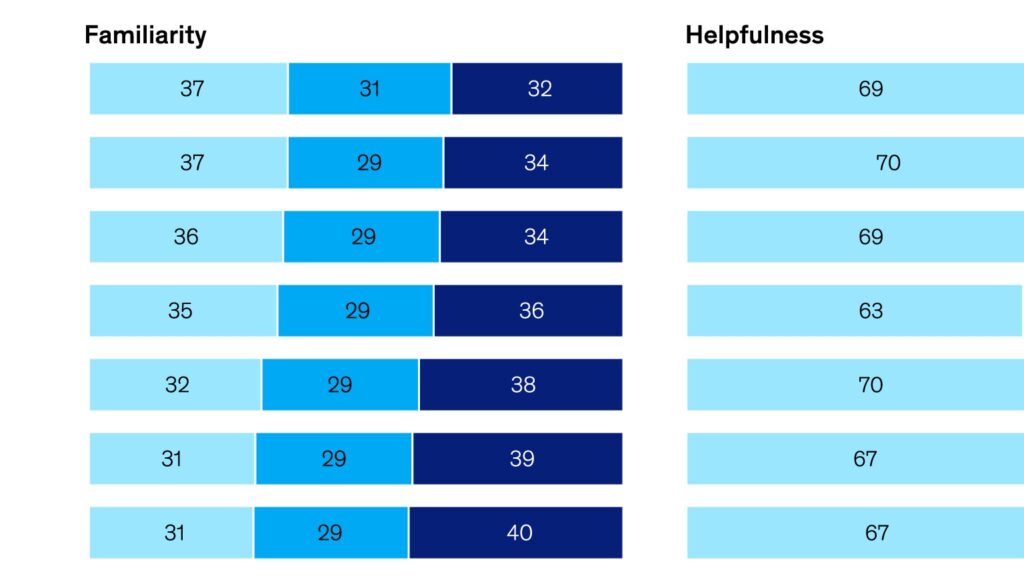Just like in other sectors, AI also has the potential to reshape healthcare. To understand where and how AI can help, it’s essential to hear from those on the front lines of patient care: nurses. Overall, nurses are cautiously enthusiastic, note senior associate Gretchen Berlin and her colleagues. About two-thirds of nurses responding to a survey say AI could be very useful in nine possible applications and more than two-thirds cite at least one opportunity to improve patient care or workload. However, they also express concern about maintaining quality of care, with 38% seeing the greatest risk in using AI for diagnostics and clinical decisions.


Description of images:
An interactive 2-panel bar chart presents data from a survey of 5,033 US nurses on their opinions on AI in 8 clinical applications: patient education, improved medication management, clinical training, improved diagnostic accuracy and clinical decision support, elimination of tasks to increase job satisfaction. , improve productivity, streamline administrative tasks and summarize progress notes and medical records.
The first panel displays responses for “familiarity” and “helpfulness,” and the second panel for “improving patient care or workload” and “risk to patient care.” Each section uses stacked horizontal bars to represent the percentage of nurses who rate the impact of AI on a 10-point Likert scale, with the following categorizations: “very” (7 to 10 points), “somewhat” (4 to 6) or “not at all” (1-3).
Respondents expressed the greatest familiarity with AI applications for patient education and improved medication management, with 37% of nurses reporting being “very familiar.” In contrast, the summary of progress notes and medical records received the highest percentage of nurses (41%) reporting that they were “not at all” familiar with AI applications in this domain. Helpfulness ratings are consistently high across all 8 applications, with “very helpful” ratings ranging from 63% (summarizing progress notes and medical records) to 70% (improving medication management and eliminating tasks for increase job satisfaction).
74% of nurses say AI is “very helpful” in improving patient care or workload to improve medication management, while only 68% feel the same about improving patient care and management. workload to summarize progress notes and medical records. The share of nurses who rated the impact of AI as “very risky” ranged from 18% (improved productivity) to 38% (improved diagnostic accuracy and clinical decision support).
Source: American Nurses Foundation Nurses Survey, March 2024.
End of image description.
To read the article, see “The Pulse of Nurses’ Perspectives on AI in Healthcare Delivery,” October 1, 2024.


